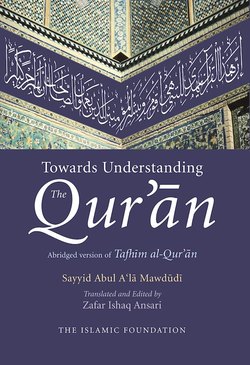Читать книгу Towards Understanding the Qur'an - Sayyid Abul A'la Mawdudi - Страница 298
На сайте Литреса книга снята с продажи.
ОглавлениеAl-Ma’idah 5: 104–5
Wasilah nor Ham;51 but those who disbelieve forge lies against Allah and of them most have no understanding (and therefore succumb to such superstitions). (104) When they are asked: “Come to what Allah has revealed, and come to the Messenger,” they reply: “The way of our forefathers suffices us.” (Will they continue to follow their forefathers) even though their forefathers might have known nothing, and might have been on the wrong way?
(105) Believers, take heed as regards your own selves. ▶
51 Here is a mention of some of the superstitious practices of the Arabs of the Jahiliyah period. Bahirah was the name of a female camel which had already borne five young, the last of which was a male. The practice was to slit the ear of such a camel and then let her loose. Thereafter no one could ride her, use her milk, slaughter her or shear her hair. She was entitled to graze and drink water wherever she liked. Sa’ibah was the name of either a male or female camel which had been let loose after consecration as a mark of gratitude in fulfilment of a vow taken for either the recovery from some ailment or delivery from some danger. In the same way the female camel which had given birth ten times, and each time to a female, was let loose. As for Wasilah if the first kid born to a goat was a male, it was slaughtered in the name of the deities; but if it was a female, it was kept by the owners for themselves. If twins were born and one of them was a male and the other a female goat, the male was not slaughtered but rather let loose in the name of the deities. This male goat was called wasilah. There was also another category known as ham: If the young of camels in the second degree of descent had become worthy of riding they were let loose. Likewise, if ten offspring had been borne by a female camel she was also let loose and called ham.
249
